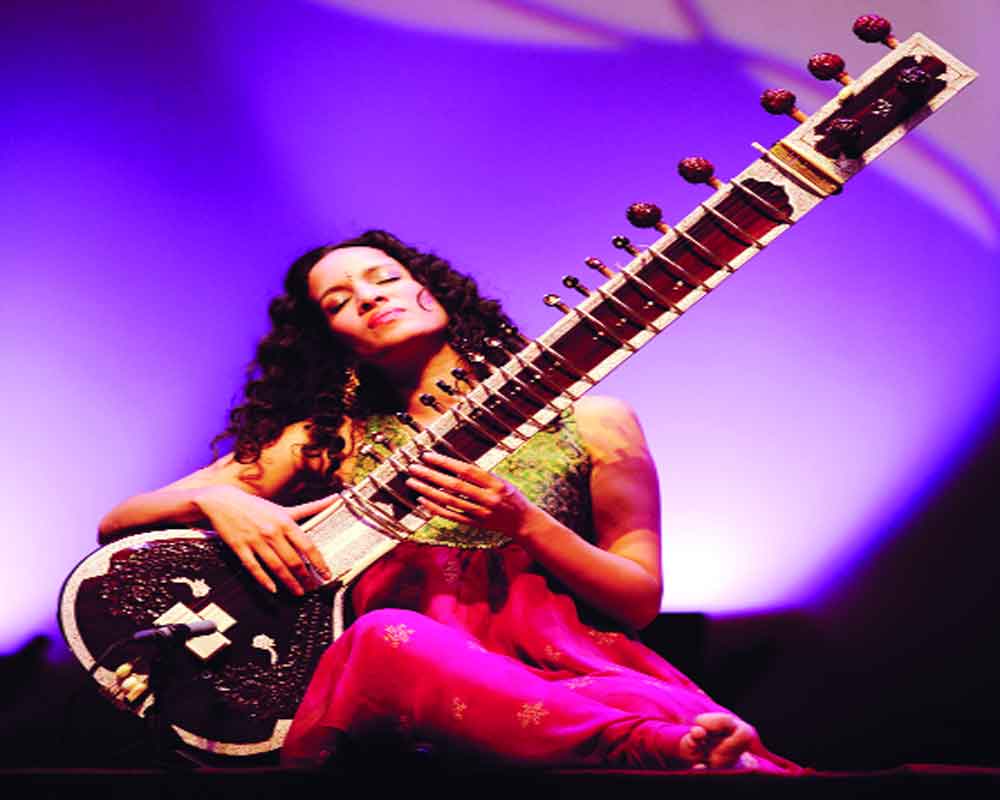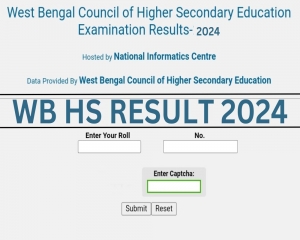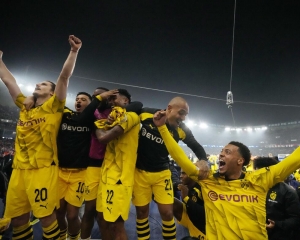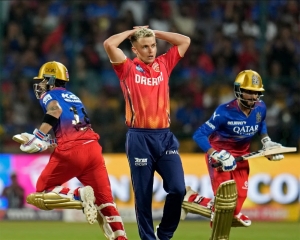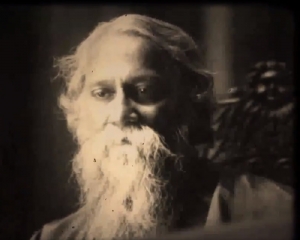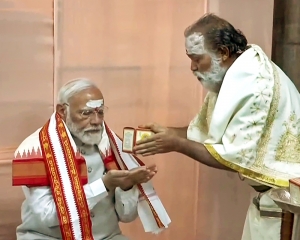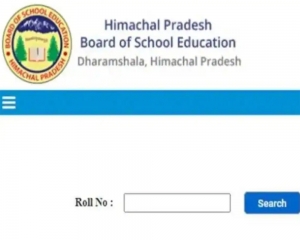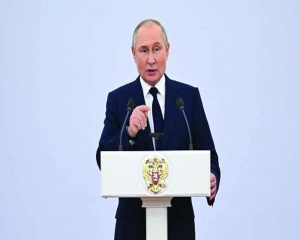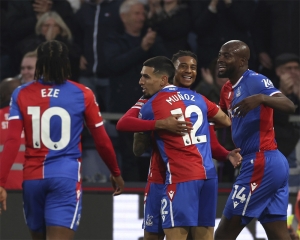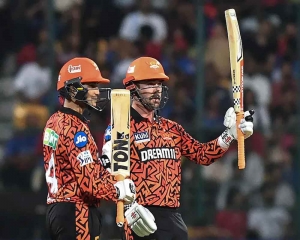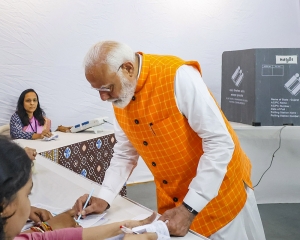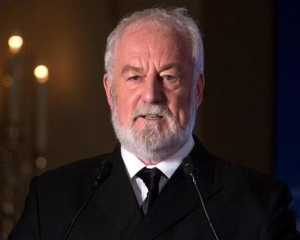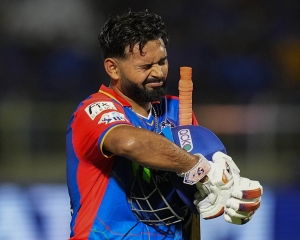For some children, the legacy of their parents weighs heavy but Anoushka Shankar wears hers effortlessly. She accepts her father Pandit Ravi Shankar for who he was, both as an artist and a father. More importantly, the six-time Grammy Award-nominated sitarist, composer and producer has taken on the mantle of continuing his legacy and is celebrating his 100th birth anniversary with a worldwide tour of her latest EP. By Saimi Sattar
Deeply rooted in Indian music traditions, from the age of nine Anoushka studied exclusively under her father and guru, the late Ravi Shankar, and made her professional debut at 13. By 20, she had made three solo recordings and received her first Grammy® nomination, becoming the first Indian woman to be nominated for the award, and the youngest ever nominee in the World Music category.
She is the youngest and first female recipient of a British House of Commons Shield, been credited as an Asian Hero by TIME Magazine, has received two Eastern Eye Awards for Music and a Songlines Best Artist Award. Anoushka is the first Indian musician to perform live at the Grammy Awards. In an email conversation with Saimi Sattar, the artists talks about her father and the way music is changing in the digital age
What was the idea behind the birth centenary celebration?
A 100th birthday is something unique and special. At the time of my father’s passing, my mother and I were more focussed on our personal process of grieving and therefore did not arrange any big concerts for him. We knew from then that we would mark this centenary in a way that befits the legendary musician he was.
What will it consist of?
We are doing special concerts and events around the world. We kick off in London on what would’ve been my dad’s actual birthday with a gala concert, featuring many amazing musicians, and this will be the very first time my sister, Norah Jones and I perform together onstage. We then tour America. I’ll play more tribute concerts worldwide and multiple museums and cultural centres will feature exhibitions on my father. Ultimately, we will conclude the celebrations with special performances in India featuring special guests and some of my father’s incredible disciples.
Will there be any compositions of Pandit Ravi Shankar as well? Would you be approaching these by reinterpreting them?
Absolutely! We are showcasing many of his incredible compositions, both iconic and lesser-known.
Yes, we are making new arrangements to properly showcase all the incredible musicians who are taking part in the shows.
The albums, Loveable and Those Words came one after another as did Passages and Land of Gold. You seem to have bursts of creativity and are prolific...
Thanks! I do enjoy being involved in varied forms of music and performances. It keeps me learning and on my toes to switch between shows with orchestras like Passages or my father’s concertos, to big electronic shows like Land of Gold and then intimate experiences like Love Letters.
You performed live on the dias while the silent film Shiraz played at the back. It was unprecedented in the way that the performance and the film came together impeccably. How long did it take to put together? What attracted you to the project?
That was definitely the most challenging work I’ve ever done! Not just composing the music but preparing to be able to play it live, with thousands of very specific cues throughout the film that needed to be precisely hit by myself and all the musicians. It takes two hours of razor-sharp focus to play that show, but all the preparation in advance on notations and technical elements made a huge difference.
While writing the biography, Bapi..The Love of My Life did it give you better perspective from a distance?
There was no distance really. I was writing a biography on my living father though my eyes. It was a lovely thing to get to do though.
Panditji as a father and as a teacher. What is the difference?
He approached both roles with love, humility and humour.
Are your sons interested in music? Are they learning it?
My older son is learning piano, but it’s pretty casual at this point.
How have performing arts mutated in the digital age?
The last decade has seen a huge leap in performing standards. People expect impeccable sound and lighting across all genres now, whereas when I was a child feedback was such a common thing. Music, itself, has obviously changed hugely as well with all the tools at hand.
During international collaborations, what are the points of confluence of Indian classical with other forms that you find?
It depends what style and with whom I’m collaborating. And it also depends on my choices. There is an infinite gradient between one style and another, and whether to meet in the middle or closer to one’s roots is purely a matter of choice.
Sharing your story of abuse through One Billion Rising would have taken a lot of courage. What compelled you to speak out?
In the immediate aftermath of the horrific Delhi gang rape, I felt strongly that sharing my story of sexual abuse would be helpful to others and help push the dialogue around how prevalent sexual violence is even further. It was hard because there was no Me Too organisation at the time to feel a part of when speaking out. But it felt like the right thing to do.
(The concert is on February 13 at Shanmukhananda Auditorium, Mumbai, and February 14 at Siri Fort Auditorium, New Delhi.)













